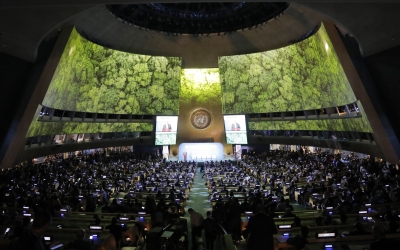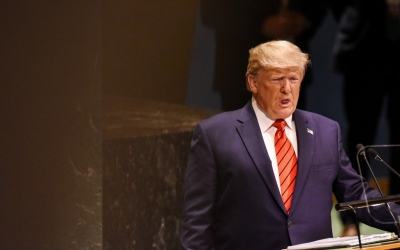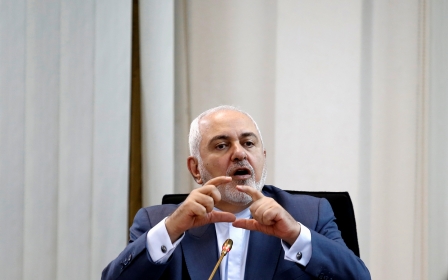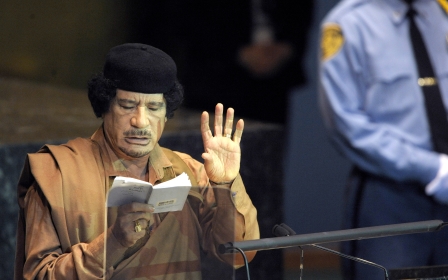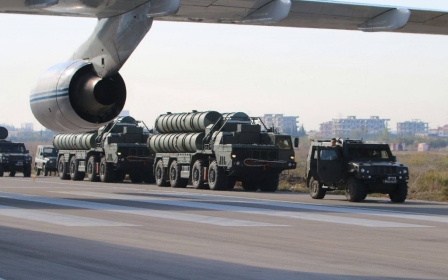Rouhani backs moving UN headquarters after new US travel restrictions
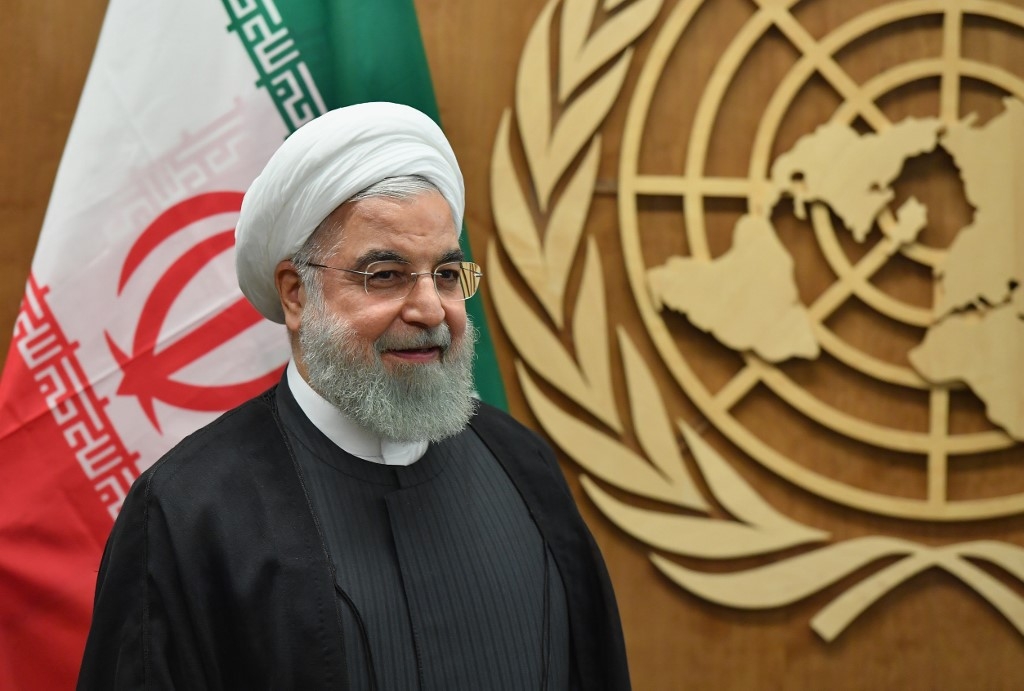
Tehran would support an initiative to relocate the UN headquarters from New York to a "more patient" country, Iranian President Hassan Rouhani said.
His comments came hours after Washington announced new sanctions on Thursday barring Iranian officials and their families from entering the United States.
In a news conference on sidelines of the UN General Assembly, Rouhani said the US's approach to diplomacy "is not benefiting anyone".
"If we're asked about moving the UN somewhere else, we support that," Rouhani told reporters.
In a statement on Thursday, US Secretary of State Mike Pompeo announced a presidential proclamation restricting entry into the United States for senior Iranian government officials and members of their families.
"No longer will elites reap the benefits of a free society while the Iranian people suffer under the regime’s corruption and mismanagement," Pompeo said.
Rouhani shot back, pointing out that the Washington has long discriminated against regular Iranians hoping to visit the US.
Iran is one of the countries covered by Trump's Muslim ban. All citizens of the Islamic Republic have to get a special waiver to be granted a visa to the US.
The Trump administration and the Iranian government have been exchanging threats since Washington pulled out of the 2015 multinational nuclear deal with Tehran last year.
Since then, the US has imposed a series of sanctions on Iranian industries and individuals, including on Foreign Minister Mohammad Javad Zarif.
The sanctions froze any assets Zarif might have in the US and barred Americans from doing business with him.
This week, diplomats and leaders from around the world headed to New York for the UN General Assembly, yet Iranian officials were not issued visas until days before their scheduled appearances.
The delay prompted Zarif to accuse Pompeo of attempting to "dodge US obligations to issue visas for UN delegates".
The US typically grants diplomats a C-2 visa, which allows them to remain in the US for as long as a month and to move within a 40km (25-mile) radius.
As host of the UN, the US almost always issues visas to foreign dignitaries seeking to enter the country on UN business.
Still, in June, weeks before the US imposed sanctions on Zarif, the State Department limited his movements to the six-block area between UN headquarters, the Iranian mission to the UN and the Iranian UN ambassador's residence.
At the time, the UN expressed its concern to the US about Zarif's travel restrictions.
As tensions continue to escalate, Iranian officials have said they are willing to negotiate with the Trump administration if US sanctions are lifted - a condition Washington has refused, despite pressure from its European allies.
Middle East Eye delivers independent and unrivalled coverage and analysis of the Middle East, North Africa and beyond. To learn more about republishing this content and the associated fees, please fill out this form. More about MEE can be found here.


